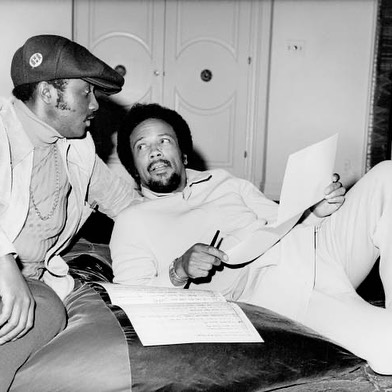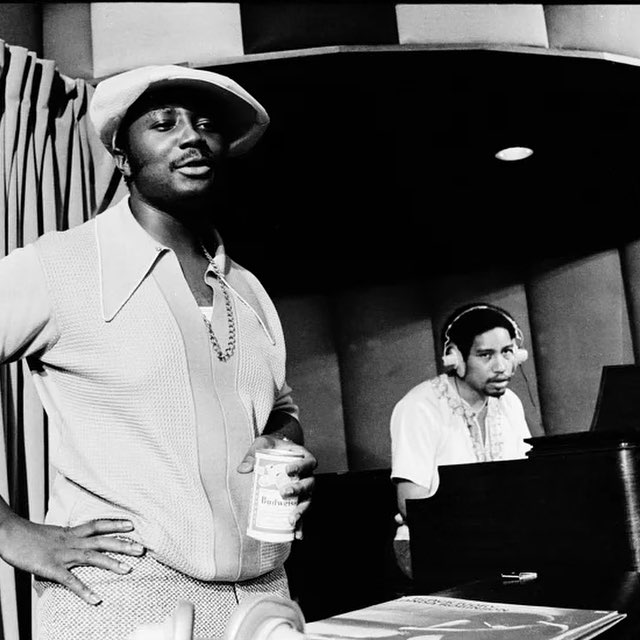Donny Hathaway, an influential soul singer and songwriter, passed away tragically on January 13, 1979. Known for his rich, soulful voice and timeless songs like “A Song for You” and “This Christmas,” Donny Hathaway’s death shocked the music world. His sudden and mysterious passing raised many questions about what actually happened, and the circumstances remain a topic of discussion to this day.
About Donny Hathaway

| Attribute | Details |
|---|---|
| Full Name | Donny Edward Hathaway |
| Date of Birth | October 1, 1945 |
| Place of Birth | Chicago, Illinois, USA |
| Nationality | American |
| Occupation | Singer, Songwriter, Producer |
| Famous For | “A Song for You,” “This Christmas,” and duets with Roberta Flack |
| Date of Death | January 13, 1979 |
| Age at Death | 33 years old |
Donny Hathaway was a beloved figure in the soul and R&B music world. His music touched millions, and his collaborations with Roberta Flack, especially their Grammy-winning duet “Where Is the Love,” remain iconic. However, his life was cut short under tragic and mysterious circumstances.
How Did Donny Hathaway Pass Away?

Donny Hathaway’s death occurred on January 13, 1979, when he fell from the 15th-floor window of the Essex House hotel in New York City. His body was discovered on the sidewalk below, and his death was officially ruled as suicide. Hathaway had a history of severe mental health struggles, including paranoid schizophrenia, which greatly impacted his career and personal life.
In the days leading up to his death, Hathaway was in New York working on new music with Roberta Flack, and according to reports, everything seemed to be going well. However, during one of their recording sessions, Hathaway began acting strangely, expressing paranoid delusions and claiming that people were trying to kill him or steal his music. His mental health had been deteriorating for some time, despite treatments.
Later that evening, Hathaway was found dead after apparently jumping from his hotel room window. While his death was ruled a suicide, some aspects of the event have remained unclear, leaving many fans and those close to him heartbroken and in shock.
Donny Hathaway Age During Death
At the time of his death, Donny Hathaway was 33 years old. Despite his young age, Hathaway had already achieved remarkable success in the music industry and was considered one of the greatest soul singers of his time. His death at such a young age robbed the world of his talent, and many believe he had much more to offer had his life not ended so tragically.
What Was Donny Hathaway’s Profession?
Donny Hathaway was a singer, songwriter, and music producer. He was known for his deeply emotional and soulful voice, which resonated with fans around the world. His music blended soul, R&B, gospel, and jazz, creating a unique sound that made him one of the most respected artists of his era.
Some of his most famous works include:
- “A Song for You”
- “This Christmas”
- “The Ghetto”
- “Someday We’ll All Be Free”
Hathaway was also renowned for his duets with Roberta Flack, particularly the song “Where Is the Love”, which won them a Grammy Award. His music remains influential to this day, inspiring countless artists across genres.
Controversy Around Donny Hathaway’s Death

There was some controversy around Donny Hathaway’s death, primarily due to the tragic and mysterious circumstances surrounding his final moments. While his death was officially ruled as a suicide, some close to him have questioned whether it was truly a suicide or if something else may have contributed. Hathaway’s severe mental health issues were well-known, and his diagnosis of paranoid schizophrenia caused him to suffer from delusions and hallucinations.
In the years leading up to his death, Hathaway had been in and out of treatment, but his condition remained unstable. The sudden onset of his erratic behavior during the recording sessions with Roberta Flack raised concerns about the effectiveness of his treatments and whether his mental health contributed directly to his death.
Though the official cause of death is suicide, the fact that Hathaway was so deeply troubled in his final days has led many to wonder if there was more to the story, including questions about how mental illness was treated in the 1970s.
